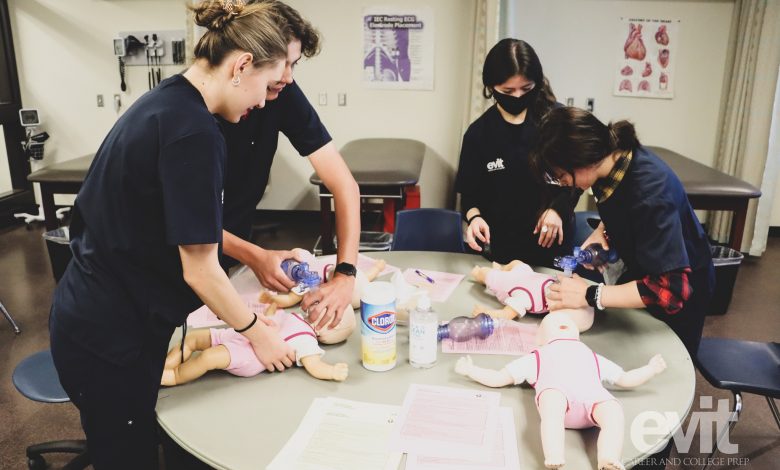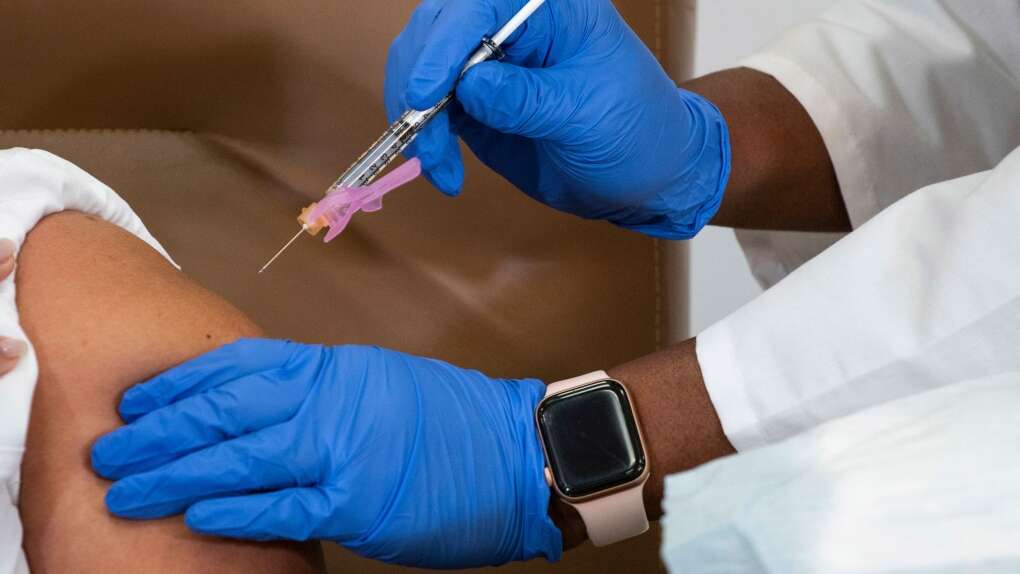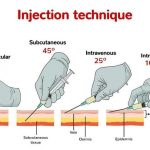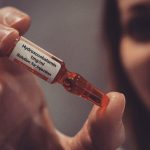Can Medical Assistants Give Injections?

Who Is a Medical Assistant?
Medical assistants are healthcare workers who work alongside physicians, mainly in outpatient or ambulatory care facilities, such as medical offices and clinics. Medical assistants play a vital role in the healthcare industry, providing services for both medical professionals and patients. They can assist with basic medical tasks such as taking vital signs, administering medications per a physician’s orders, or gathering medical history. They also help on the office side of medical clinics by scheduling appointments, billing insurance, and processing paperwork.
Becoming a medical assistant can be a much quicker path than pursuing a medical degree or nursing degree. Generally, those pursuing a nursing degree need to complete at least four years of postsecondary school, while doctors complete 12 or more years to receive their medical degree. Medical assistants, however, only need to earn a high school diploma, and in some cases, they complete a medical assistant program to become certified medical assistants (CMAs). Much of the training to become a medical assistant can actually take place through on-the-job training.
Medical assistants are cross-trained to perform administrative and clinical duties, as evidenced by the Occupational Analysis of Medical Assistants.
Here is a quick overview (duties vary from medical practice to medical practice depending on location, size, specialty, and state law):
Clinical Duties (may include, but are not limited to):
• Taking medical histories
• Explaining treatment procedures to patients
• Preparing patients for examinations
• Assisting the physician during examinations
• Collecting and preparing laboratory specimens
• Performing basic laboratory tests
• Instructing patients about medication and special diets
• Transmitting prescription refills as directed
• Phlebotomy
• Taking electrocardiograms
• Wound care and changing dressings
What is an injection?
An injection also referred to as a “shot” is the act of administering a liquid, especially a drug, into a person’s body using a needle (usually a hypodermic needle) and a syringe. An injection is considered a form of parenteral drug administration; it does not involve absorption in the digestive tract.
Giving an injection allows the medication to be absorbed more rapidly and avoid the first pass effect. There are many types of injection, which are generally named after the body tissue the injection is administered into.
The four most frequently used types of injection are:
- Intravenous Injection: The abbreviation of intravenous injection is IV. This route is the fastest way to send medication and deliver fluids directly into a vein. Intravenous (IV) injection or infusion; medication sent directly into the vein using a needle or tube.
- Intramuscular Injection: The abbreviation of intramuscular injection is IM. This route is used for the Injection of a substance into muscle.
- Subcutaneous Injection: The abbreviation for subcutaneous injection is SC. For SC injection, the short needle is used to give medication into the layer between the skin and muscle.
- Intradermal Injection: The abbreviation of Intradermal injection is ID. This route is used to deliver medication into the dermis or the skin layer underneath the epidermis.

Can medical assistants give injections?
Yes, a certified medical assistant (CMA) can administer injections, their clinical duties also consist of preparing and administering medications either by intramuscular, intradermal, or subcutaneous routes. This includes vaccinations or immunizations, as directed by a physician or other licensed provider (e.g., a nurse practitioner or physician assistant)
These duties were previously reserved for qualified medical doctors and nurses who are trained to deliver injections properly and safely. According to the American Public Health Association, professionals who will be able to administer the COVID-19 vaccine include Nurses, nurse practitioners, doctors, students in health professions, physician assistants, pharmacy technicians, veterinarians (who routinely administer shots to animals), dentists, medics and EMTs.
CDC’s Injection Safety Tips
The Centers for Disease Control and Prevention (CDC) offers the following safe injection practice recommendations:
• Prepare injections using an aseptic technique in a clean area.
• Disinfect the rubber septum on a medication vial with alcohol before piercing.
• Do not use needles or syringes for more than one patient (this includes manufactured prefilled syringes and other devices such as insulin pens).
• Medication containers (single and multidose vials, ampules, and bags) are entered with a new needle and new syringe, even when withdrawing additional doses for the same patient.
• Use single-dose vials for parenteral medications when possible.
• Do not use single-dose (single-use) medication vials, ampules, and bags or bottles of intravenous solution for more than one patient.
• Do not combine the leftover contents of single-use vials for later use.
• The following apply if multidose vials are used:
o Dedicate multidose vials to a single patient whenever possible.
o If multidose vials will be used for more than one patient, they should be restricted to a centralized medication area and should not enter the immediate patient treatment area (e.g., dental operatory) to prevent inadvertent contamination.
o If a multidose vial enters the immediate patient treatment area, it should be dedicated for single-patient use and discarded immediately after use.
o Date multidose vials when first opened and discard within 28 days, unless the manufacturer specifies a different date.
• Do not use fluid infusion or administration sets (e.g., IV bags, tubings, connections) for more than one patient.





